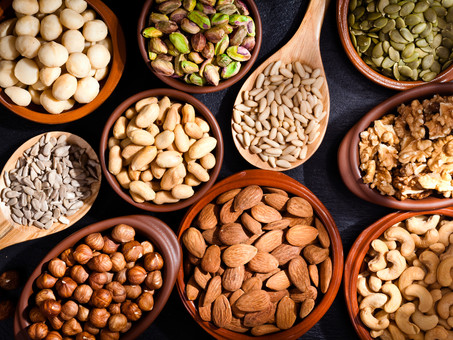Diversifying your Protein Choices
- Linked Fit

- Dec 2, 2020
- 1 min read
Updated: Feb 5, 2021
How is your protein intake?
Making sure you are eating different sources of protein is critical to ensure you are intaking all 9 essential amino acids. The 9 essential amino acids include leucine, histidine, isoleucine, lysine, methionine, phenylalanine, threonine, tryptophan, and valine. The essential amino acids are amino acids that our bodies do not make naturally, therefore we need to get them from the foods we consume. They are used in a variety of metabolic pathways and in order to keep these pathways running as efficiently as possible, it's important to acquire all 9. A food that has all 9 essential amino acids is considered “complete”. Animal sources of protein and some plants have all 9 essential amino acids present.

Keep in mind, not every meal or snack protein source needs to be a complete protein. Obtaining all 9 amino acids is important but it does not need to be done in every meal. It can easily be done throughout the day, so make sure to incorporate protein sources throughout all of your meals. By trying to diversify our proteins, it can lead to better habits of finding variety in our other foods as well! Each protein source as well as other foods contain different nutrient makeups, continue to diversify to help obtain and maximize your nutrient intake.
Below are some common proteins and what essential amino acids they contain.
Complete sources of protein (contain all essential amino acids):
Tofu
Edamame
Miso
Beef
Pork
Dairy
Pumpkin Seeds
Chicken
Eggs
Quinoa
Chia seeds
Amaranth
Buckwheat
Ezekial Bread
Spirulina
Hemp Seeds
Foods that have many essential acids but not all:
Legumes
Nuts
Most seeds
Whole grains
Vegetables













Comments